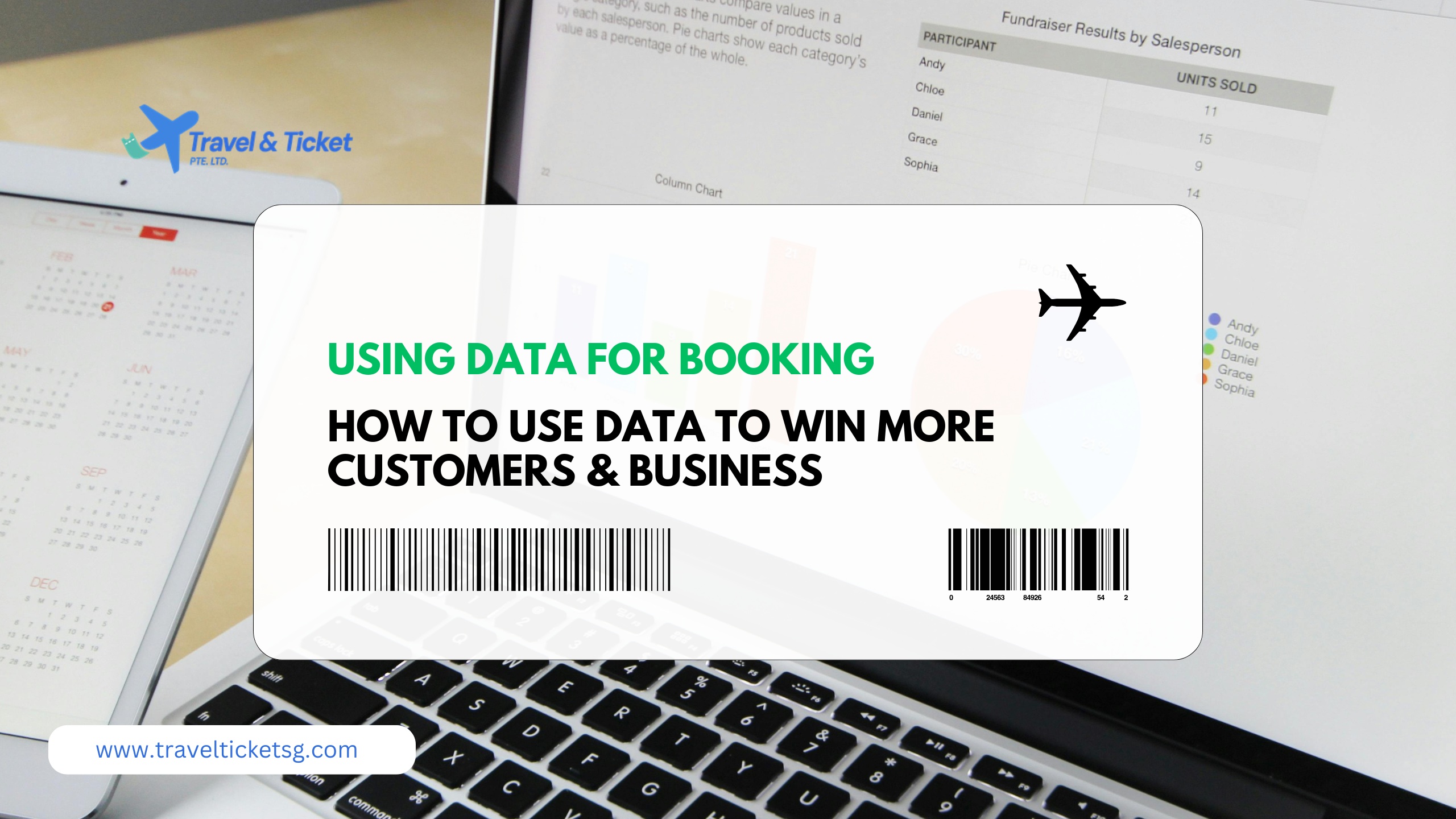How Agencies Can Use Data to Close More Bookings
Author: Md Billal Hossain
Date: 09 Oct, 2025

How Agencies Can Use Data to Close More Bookings
In today’s travel industry, data isn’t just a buzzword—it’s the difference between agencies that thrive and those that struggle to keep up. Travelers are more informed, competition is sharper, and margins are tighter. The agencies that win in 2025 will be the ones that know how to turn raw data into actionable insights that help them close more bookings.
So, how exactly can agencies use data to boost conversions and build stronger client relationships? Let’s explore.
Understand What Clients Are Searching For
Every booking starts with a search. By analyzing Google Trends, keyword data, and consolidator dashboards, agencies can see what destinations, routes, or travel types are gaining traction. For example, if searches for “visa-free destinations for South Asians” spike, agencies can quickly create campaigns around Malaysia, Indonesia, or Thailand.
This proactive approach means you’re not just reacting to demand—you’re anticipating it. And when you show up with the right offer at the right time, clients are far more likely to book with you.
Use Booking Data to Personalize Offers
Clients don’t want generic deals. They want offers that feel tailored to their needs. By tracking past bookings, seat preferences, and travel patterns, agencies can create personalized recommendations.
Imagine sending a message like:
“We noticed you often book Dhaka–London flights. Here’s a premium economy upgrade deal that saves you time and adds comfort.”
That level of personalization makes clients feel understood—and more willing to say yes.
Spot High-Value Segments with Analytics
Not all clients contribute equally to your bottom line. Data helps you identify high-value segments such as corporate travelers, frequent flyers, or large groups. These clients often bring repeat business and higher margins.
By focusing your marketing and sales efforts on these segments, you maximize ROI while reducing wasted effort on low-value leads.
Optimize Pricing with Real-Time Insights
Airfares fluctuate constantly, and agencies that rely on outdated pricing risk losing clients. By using consolidator tools and real-time fare comparison engines, you can:
- Lock in competitive rates before they rise
- Offer clients transparent pricing options
- Reduce the risk of losing bookings to OTAs
When clients see that you consistently provide the best value, they’re more likely to trust you with repeat business.
Improve Sales Conversations with Data-Backed Insights
Data isn’t just for marketing—it’s a powerful sales tool. When your agents can say, “Based on current booking trends, this route is filling fast,” or “Our analytics show this airline has the best on-time performance,” it builds credibility. Clients feel reassured that they’re making a smart decision, not just taking a gamble.
Automate Follow-Ups and Retargeting
Many bookings are lost not because of price, but because agencies fail to follow up. With CRM systems and marketing automation, you can use data to:
- Send reminders for abandoned inquiries
- Retarget clients with similar offers
- Trigger personalized emails based on browsing behavior
These small nudges often make the difference between a lost lead and a confirmed booking.
Final Thoughts
Data is no longer optional—it’s the backbone of modern travel sales. Agencies that learn to harness it can anticipate demand, personalize offers, and close more bookings with confidence. And with the right consolidator partnerships, the process becomes even smoother. For agencies looking to stay ahead in 2025, working with trusted partners like Travel and Ticket PTE Ltd. ensures you have both the insights and the tools to turn opportunities into revenue.
FAQs: Using Data to Close More Bookings
1. Why is data important for travel agencies?
- Data helps agencies understand client behavior, predict demand, and create personalized offers that increase conversions.
2. How can agencies use Google Trends for bookings?
- By tracking trending destinations and routes, agencies can align campaigns with real-time demand.
3. What type of data is most valuable for agencies?
- Booking history, client preferences, search trends, and fare fluctuations are the most actionable data points.
4. Can small agencies benefit from data-driven strategies?
- Yes, even basic insights like top routes or repeat client behavior can significantly improve sales outcomes.
5. How does data improve client trust?
- When agents use data to provide transparent pricing and tailored recommendations, clients see them as reliable advisors rather than just sellers.